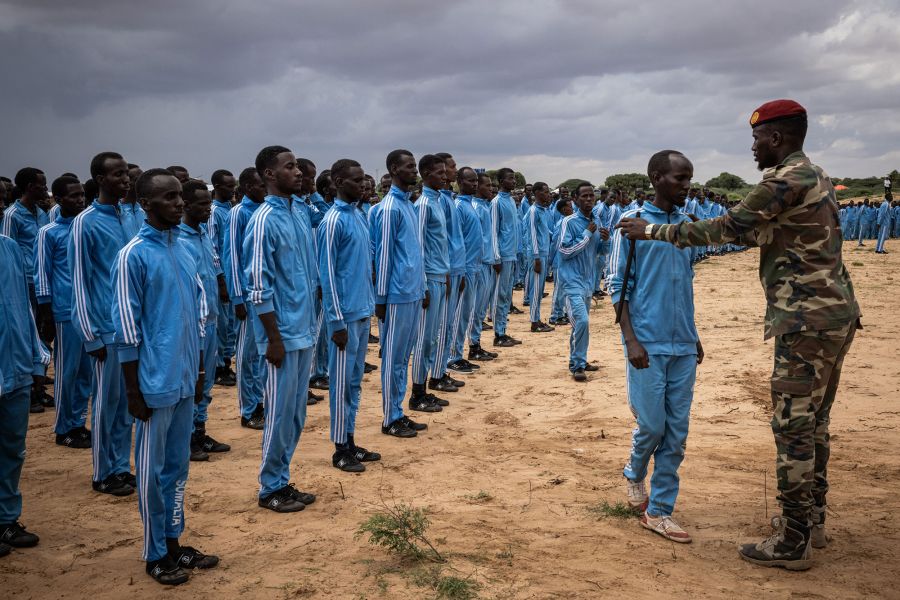News
News Published: 26 May 2025
Somalia: EUAA reports show rising insecurity and political fragmentation in the country

The EUAA has just published two Country-of-Origin Information (COI) reports on the security situation and on the socio-economic conditions in Somalia. These come as Al-Shabaab has escalated attacks on Mogadishu and its surroundings. Paired with broader instability and political fragmentation in the country, the reports show that the civilian population continues to bear the brunt of a chronic and multi-layered armed conflict.
At the end of March 2025, Al-Shabaab, the armed Islamist group and al-Qaeda affiliate that has been wrestling for power and territorial control with the Federal Government of Somalia for almost two decades, began to tighten its grip on the capital – Mogadishu. Given the evolving context in Somalia, the European Union Agency for Asylum (EUAA) has now published a comprehensive COI update on the country.
In its first report, Somalia: Security Situation (2025), the EUAA estimates that between April 2023 and March 2025 over 75 % and 80 % of the security incidents and estimated fatalities1, respectively, can be linked to the Al-Shabaab/anti-Al-Shabaab conflict. It also finds that other major sources of insecurity in Somalia include intra- and inter-clan rivalries, a parallel ISIS/anti-ISIS conflict, as well as competing territorial and political projects across the country.
In its second report, Somalia: Country Focus (2025), the EUAA reports on the key profiles relevant to international protection and provides updated socio-economic indicators. Therein, the Agency notes that certain groups in Somali society must navigate a challenging environment characterised by abuse, targeting and various forms of punishment.
In Somalia, adults and children may be forcibly recruited by the various armed forces, and women and girls are exposed to Gender-based Violence (GBV) and / or Female Genital Mutilation or Cutting (FGM/C). In addition, some individuals suffer from corporal punishment for contravening religious laws. Journalists are restricted in their freedom and exposed to safety concerns. LGBTIQ+ persons are in constant hiding, therefore remaining highly invisible, and regional returnees often go through consecutive onward displacements.
International protection situation for Somali nationals
Between April 2023 and March 2025, Somali nationals lodged nearly 38 000 applications for international protection in the EU+, a slight increase (+ 8 %) compared to the 2 years prior. Germany (12 000) continued to receive most Somali applications in the EU+, followed by France (5 400), Greece (4 300), the Netherlands (2 600) and Ireland (2 600).
Between April 2023 and March 2025, EU+ countries issued approximately 32 000 decisions at first instance on Somali applications, and the EU+ recognition rate stood at 59 %. At the end of March 2025, there were about 16 000 cases pending at first instance.
Background
The EUAA regularly updates its Country-of-Origin Information reports, which aim to provide accurate and reliable up-to-date information on third countries to support EU+ national asylum and migration authorities involved in migration and international protection procedures.
- 1
Based on data collected from the Armed Conflict Location & Event Data (ACLED) database.

